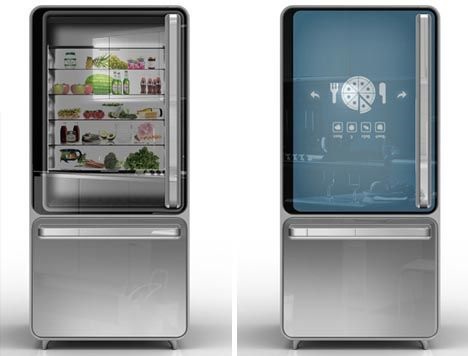According to a recent Statista report, global spending on Internet of Things (IoT) products reached $805 billion in 2023, with expectations for continued growth in the coming years. For several years, Endrich Bauelemente GmbH, the German distributor for NeoCortec, has been engaged in developing smart IoT-related products, such as a concept for a smart fridge. They have incorporated NeoCortec’s ultra-low-power, scalable NeoMesh wireless sensor modules into their solutions.
One major advantage of a mesh solution like NeoMesh technology is that it requires only one central gateway to collect and transmit all sensor data to the Cloud. Connecting different parts of the network does not require repeaters or additional gateways. Zoltan Kiss, Head of the R&D Department at Endrich Bauelemente, explains, “By integrating NeoMesh sensor modules into our solution, we can easily capture necessary data and wirelessly transmit it to our own IoT ecosystem or any other suitable cloud service.” Kiss adds, “With its extremely low power consumption and ability to establish scalable local wireless networks, NeoMesh is the ideal product for our smart IoT solution.”
In partnership with NeoCortec, Endrich Bauelemente GmbH has been actively developing a smart fridge concept to enable manufacturers to incorporate intelligent features, allowing end users to monitor various parameters of their refrigerators via a mobile application.
The NeoMesh wireless sensor modules facilitate seamless and efficient integration of multiple IoT functionalities. These functionalities include monitoring temperature and humidity inside the refrigerator, as well as tracking interior light brightness and door status. Data collection on the frequency and duration of door openings can provide valuable insights for marketing or commercial purposes, especially in settings like gas stations or retail stores. One of Endrich’s initial clients, Audax Electronics in Brazil, has successfully integrated NeoMesh modules into the LED lighting units of their fridges to monitor temperature and door status. These LED units can be installed in both smart-capable and conventional refrigerators.
Key requirements for IoT sensor modules in smart devices include compact size, easy installation, independence from electrical and wired communication networks, and straightforward commissioning. Battery-powered, wireless communication technology like NeoMesh, with all necessary sensors integrated into the module, allows for installation without a specialist. “This user-friendliness is what makes our NeoMesh technology so appealing,” comments Thomas Steen Halkier, CEO of NeoCortec. Sensor measurements are wirelessly transmitted to the appropriate cloud service for data analysis via the self-forming mesh network. This eliminates the need for extensive cabling, reducing infrastructure costs and providing greater flexibility in network deployment, as sensor nodes can be installed anywhere. “Our NeoMesh technology is especially suited for wireless sensor networks where sensors don’t need to transmit data frequently and where the data payload size is small,” adds Halkier.
The NeoMesh wireless communication protocol is supported by a variety of fully-integrated, pre-certified ultra-low-power bi-directional sensor modules. These modules come in various versions, all incorporating the core NeoMesh protocol stack across different frequency bands (868 MHz, 915 MHz, and 2.4 GHz) and preloaded with the proprietary NeoCortec protocol stack.








